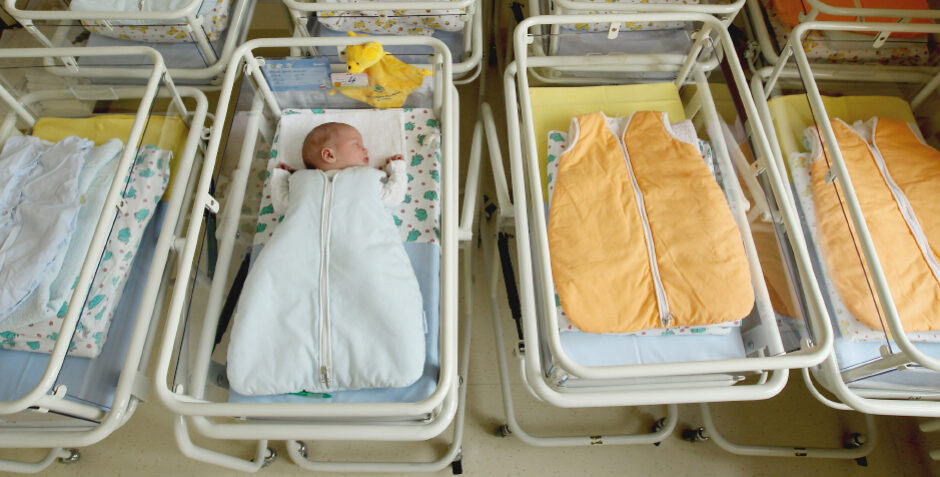ACLJ Urges UN Human Rights Council To Denounce Infanticide and Put a Stop to Barbaric “Torturous” Abortion Practices Worldwide
It’s high time the world takes action to stop the torture of the most defenseless and vulnerable – unborn babies.
Over the past year, the majority of the world has agreed to take special precautions in order to protect the “most vulnerable” – specifically the elderly and immunocompromised – who are most susceptible and likely to suffer and even die from the current pandemic.
Yet, much of the world continues to turn a blind eye to the killing, through means that are tantamount to torture, of those who are completely defenseless – unborn babies still in their mothers’ wombs.
We recently told you how abortion has become the world’s leading cause of death, surpassing cancer, heart disease, and even criminal violence.
Some countries have recognized the horrific nature of abortion and have taken action to oppose it. According to the 2020 Geneva Consensus – signed by 35 U.N. member states – there is “no international right to abortion, nor any international obligation on the part of States to finance or facilitate abortion, consistent with the long-standing international consensus.”
However, pro-abortion activists in some countries have claimed that prohibiting abortion is tantamount to “torture” for those with unwanted pregnancies. Even the U.N. Special Rapporteur on Torture and Other Cruel, Inhuman or Degrading Treatment or Punishment released a report claiming that denying “access to medically safe abortion can violate the prohibition of torture and ill-treatment.”
By that rationale, denying a woman an abortion is the same as torturing her. But what about torturing – and ultimately killing – babies? That is what abortion does.
We just went directly to the U.N. Human Rights Council (UNHRC) in Geneva, Switzerland, through our European affiliate office, the European Centre for Law and Justice (ECLJ), to denounce neonatal infanticide and put a stop to international abortions, especially once an unborn child can feel pain.
In our written submission to the UNHRC, we specifically called attention to certain abortion procedures “that are characterized as acts of torture, inhuman, and degrading treatment of human beings. These are the procedure of abortion by dismemberment and neonatal infanticide.”
As our submission pointed out:
Several scientific studies indicate that the [unborn baby] may feel pain. At a minimum, it has been established that as early as 8 weeks, the [baby] responds to touch. Several U.S. states have taken legal steps to take into account this sensitivity to pain of unborn children. As stated in the Pain-Capable Unborn Child Protection Act, as early as 20 weeks of development, the [baby] is able to feel pain through a functional nervous system.
It is obvious that the dismemberment of a human being clearly is an act of characterized torture. Per se, such practices on unborn children should be prohibited.
The ECLJ also pointed out that under certain abortion practices, some babies actually manage to survive the procedure and are born alive, but they are then left to die – many times without medical intervention.
However, the child may survive the abortion. This is mainly due to the fact that intracardiac or umbilical cord injection is difficult to perform and that some doctors do not do it. Furthermore, the older the unborn child is, the more likely he is to survive leaving the womb.
If a child survives the [feticide] . . . doctors will euthanize them. Doctors either let the child die alone, in an isolated corner, or pressure the child's throat to suffocate them, or give them an injection of potassium chloride.
Every member state signed the 1984 U.N. Convention Against Torture. So why are these barbaric practices still allowed to continue around the world, even with scientific evidence that babies in the womb are fully capable of experiencing pain and suffering?
Here at home, the Pain-Capable Unborn Child Protection Act has once again been reintroduced in Congress. This bill would prohibit abortion after 20 weeks, when it is commonly accepted that unborn babies can feel pain. Other reports have said that unborn babies are fully capable of feeling pain as early as 12 weeks, possibly sooner. Yet, here in the United States, we’ve told you how some states with abortion-friendly leadership have pushed and passed laws to allow abortion all the way up to the moment of birth – and in some states, even after.
And, in just his first week in office, we reported how President Joe Biden signed an Executive order to revoke the Mexico City Policy.
The pro-life policy, renamed Protecting Life in Global Health Assistance (PLGHA), restricted foreign NGOs from receiving federal funding (our hard-earned tax dollars) if they perform or promote abortion as a method of family planning in other nations. Originally created under President Ronald Reagan, the policy has a history of being revoked by pro-abortion presidents, and reinstated by more pro-life presidents. It was most recently revoked by President Obama, but reinstated and expanded by President Trump.
President Biden’s callous action signifies that working Americans will have to pay for abortions not only here at home, but overseas and across borders, including the aforementioned procedures that torture innocent babies before ultimately taking their lives.
The ACLJ has redoubled our efforts to defend life worldwide. We are prepared to challenge the new Administration’s pro-abortion policies at every turn We are fighting extreme abortion legislation in courtrooms across the country – even at the Supreme Court. And now we are urging the world’s leaders to stand against torture by protecting its youngest victims, precious unborn babies.
In our submission to the U.N., we outline in disturbing detail exactly how certain abortion procedures cause pain and suffering to unborn babies. Reader discretion is advised. The full submission can be found here.
This article was coauthored by ACLJ Associate Counsel for Public Policy Olivia Summers.
